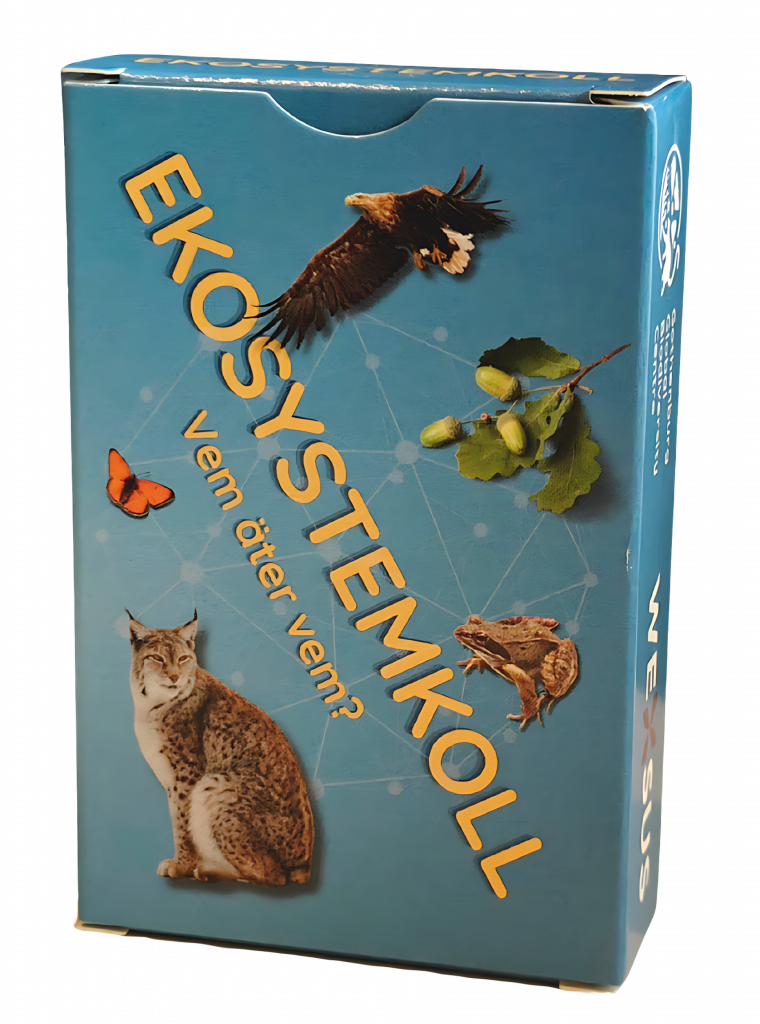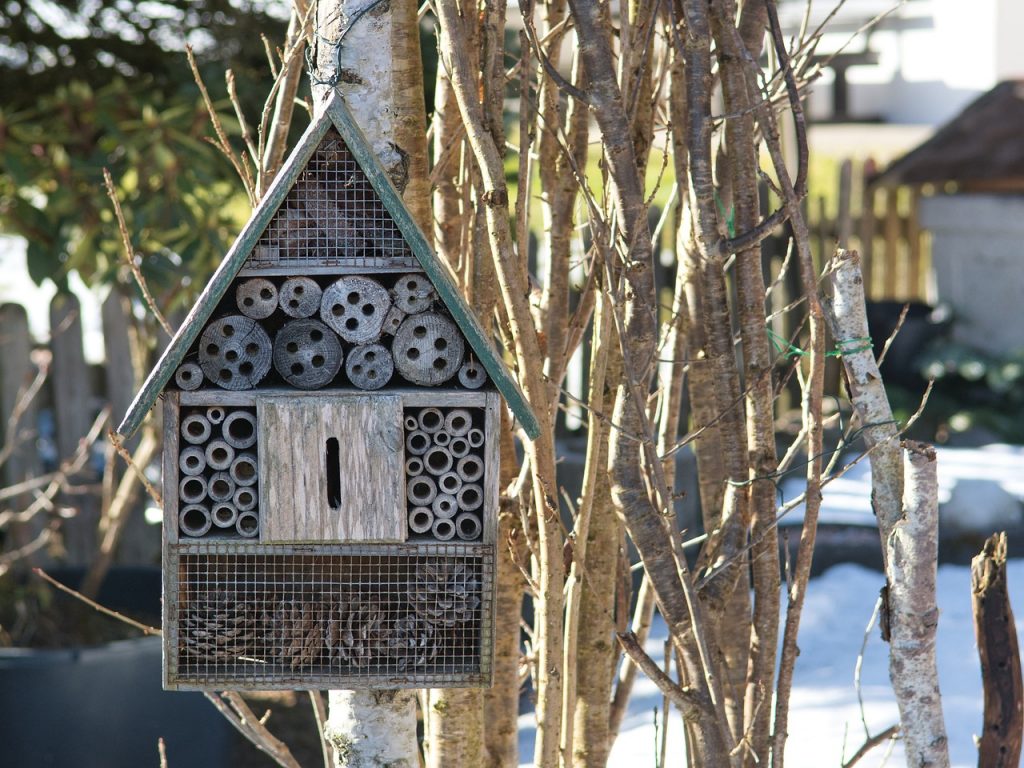SUPPORT ECOSYSTEMS AND BIODIVERSITY
Our games Biodiversity Call and Ecosystem Call (so far, only available in Swedish) invite players to explore the connections between species, ecosystems, and the many threats they face — from climate change and pollution to habitat loss and over-exploitation. Both games are designed for educational use and aim to spark curiosity, build understanding, and inspire action.
We know that after playing, many will ask themselves: “What can I actually do?” This page is here to support that step — offering practical tips and concrete “dos and don’ts” that anyone can try at home, in school, at work or in their community.

DOS AND DON’TS FOR BIODIVERSITY
THINGS TO DO
- Make space for wildlife in the garden: leave a “wild corner” with meadow flowers that bloom into late summer, let leaves and twigs lie over winter or rake them into small piles for insects and hedgehogs, and keep a log of dead wood — one of the best natural shelters for beetles and pollinators. Read more here.
- Put out a shallow water tray or mini-pond during dry periods — a lifesaver for birds, bees, butterflies, hedgehogs, frogs and other small animals. See how here.
- Reduce waste and avoid single-use plastics, and skip chemicals and pesticides in the garden.
- Set up a ‘nectar café’ by planting flowers for pollinating insects like bees and butterflies in pots on the balcony, windowsills, or at school. Make sure to choose native plants!
- Ask your school or workplace to put up birdhouses, bat boxes, or plant flowers. Here are more tips what you can do at the workplace.
- Take part in a litter-picking day with classmates, colleagues, or friends — cleaner habitats mean healthier ecosystems.
- Make a seed bomb filled with native meadow flower seeds and let it explode! Learn how here.
- Consume mindfully. Buy local, organic, and sustainably harvested food and seafood (e.g., eco- and MSC-certified) from companies that support conservation.
- Share what you learn: talk to friends, family, and even local decision-makers about biodiversity conservation and ecosystem protection.
- Volunteer: Get involved with local conservation groups, community gardens, or citizen science projects.
THINGS TO AVOID
- Don’t litter (especially near water) — cigarette butts, chewing gum, plastics and other waste harm wildlife.
- Don’t use pesticides or synthetic fertilisers if you have a garden — hand‐weed instead and use organic methods to control harmful insects.
- Don’t mow the entire lawn every week — leave flowering strips and avoid robot mowers that clear everything.
- Don’t keep bright outdoor lights on all night — it disrupts nocturnal wildlife and insects.
- Don’t buy peat-based soil — choose peat-free alternatives (peatlands are important carbon sinks).
- Don’t trim hedges during the bird nesting season (Apr–Jul) — many birds build their nests in hedges, bushes, or trees during spring and summer. Cutting or disturbing them can destroy nests, harm chicks, or cause parents to abandon their young.
- Don’t release aquarium plants or fish into nature, or buy invasive species.
- Don’t buy souvenirs or products made from wild animals, corals or shells.
- Don’t pour chemicals, paint, oil or cleaners down the drain — it many end up in rivers, seas and other natural habitats.
- Don’t remove fallen trees or branches from forests or beaches — they are essential micro-habitats for insects, fungi and small animals.
- Don’t overconsume — buy less, repair more, and avoid single-use goods. Making and transporting products uses land, water, energy, and raw materials, often destroying habitats in the process.
- Don’t stay silent or inactive — talk about nature loss and what can be done against it; collective voices matter!
WHAT ABOUT INSECT HOTELS?
Insect hotels often appear on “biodiversity tip” lists, and for good reason: they can provide nesting sites for solitary bees and other insects. But here’s the catch — if they are poorly built or not maintained, they can do more harm than good. Parasites, mold, and disease can build up inside, especially if the hotel is left untouched year after year.
That doesn’t mean insect hotels should be avoided — only that they need to be done right! Use natural, untreated materials like bamboo stems or drilled wooden blocks, make sure the tubes are the right diameter (2–10 mm) and closed at the back, and place the hotel in a sunny, sheltered spot. Most importantly: replace or clean the nesting material every 1–2 years to prevent parasites from spreading.
If that sounds like too much maintenance work, there’s a simpler and often better option: just leave nature to do the work! Dead wood, hollow stems, and piles of leaves or twigs naturally provide the same shelter — without the need for maintenance.
Want to try anyway? Check out the resources linked via the buttons.
EXERCISES FOR SCHOOLS
Our games Ecosystem Call and Biodiversity Call are designed to be used as educational tools, in classrooms. To make teaching even easier, we have created ready-to-use lesson materials connected to both games. These include teacher’s guides, discussion questions, and fun exercises that deepen learning about biodiversity, ecosystems, and sustainability.
Use the buttons to explore materials for teachers. Note that Ecosystem Call is so far only available in Swedish.

